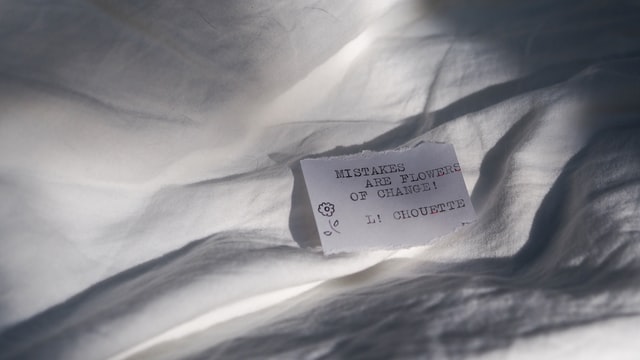Attention: This Building is Unsafe and Likely to Collapse
Crumbling bricks and crooked girders
Speckled lungs, speckled tissues when I cough
A six stone mound
Half of what I used to be
Cemented to my deathbed.
Set.
Hardened.
A strong and fastened pretense for the children
But inside invaded these bones of mine are breaking
One-in-a-million plans for refurbishment were unviable.
I am structurally unsound.
I’m not in pain,
I’ve no regrets (though perhaps I might have been a little kinder)
Propped up by pillows, pills and people
Real people who can look me in the eye and say How is the Cancer?
Without muttering about the weather
Or squeezing my hand and saying how unfair it all is.
Beyond the humming fan that keeps me cool these July afternoons
I hear football and frisbee in the park,
The children practicing Gymnopedie
So I can lie for hours, naked, pen in hand
Perfectly content.
Assured I won’t be in pain
I fear now for the old woman I will never be.
The four I bore but won’t
Get to see through school or university or marriage –
No grandchildren.
Will they dare to love, aware one
Like me
Can be so untimely declared decayed and demolished?
I decided to write a poem in the style of Julia Darling, but from the perspective of my mother coping with her own illness. This became a very personal journey for me once I had decided to use my own mother’s experience of illness as a starting block. Having never looked much into those months of darkness that followed my mother’s diagnosis with terminal lung cancer, I feel I was waiting for the perfect excuse to uncover a lot of the emotions I had buried for so long. I read back through the blog my mother wrote when she was ill which had allowed her to connect with other cancer sufferers and further stop the telephone ringing with calls from anxious and dutiful friends and relatives. I was overwhelmed by my mother’s resilience, her ability to talk so frankly about death, to accept death, to work so inspirationally with the short time she had left. I wanted to express this strength I so admired, hence the decision to write a poem about her for my creative piece. I have always loved poetry and it was a very important part of my relationship with my mother as she taught me a poem each week growing up and I subsequently read poetry at her funeral.
My mother used poetry to escape from reality. She wrote, As I feel this illness closing in with still so much to do, to love, to live for, bugger it — the great consolation is poetry. I have always loved a poem. So, forget chocolate, and please send poems instead. My mother specifically requested poems that her friends and followers found consoling or uplifting the poetry proved a distraction from the miserable and helpless situation she had found herself in.
I really enjoyed the writing process and hope to write in future to alleviate my own stress from the demands of my course. I am so glad that others also revel in the power of language and use it for reasons far beyond those I was previously aware of. Having now experienced the therapeutic power of writing, art and film, I aspire to be increasingly creative as a doctor I believe expanding my healing toolbox with unconventional methods will allow me to connect more deeply with patients, and offer them a wider range of ideas to draw upon. I believe that when I am qualified, I would prescribe a poem to one of my patients if this was a particular interest of theirs or if they were having difficulty expressing their feelings about their illness. As Balfour Mount recognizes, patients at the end-of-life are so ready to be open thus for them it becomes a time fraught with, filled with, potential(2) how incredible to turn such unfortunate circumstance into an act of astonishing truth and beauty.
Julia Darling was a poet who used the art of poetry to contend with the breast cancer that was attacking her body. She published many anthologies including both Poetry is the Cure and the First Aid Kit for the Mind. My mother connected with Julia through the blog that she wrote when she too was terminally ill with stage IV lung cancer that had spread to her bones and lymph nodes. Both had turned to writing in the face of pain, anxiety and the unknown in a quest to possess some control over their rapidly spreading cancers.
My mother, amongst articles, also published: What Can I Do to Help?: 75 Practical Ideas for Family and Friends from Cancer’s Frontline, by Deborah Hutton, (Short Books.) For every book sold, all of the author’s royalties, will be paid to Macmillan Cancer Relief.

This poem is beautiful because of its candour; it describes the pain felt by the artist’s mother, as well as her concerns for her future, especially related to her family. Lines such as ‘I fear now for the old woman I will never be’ and ‘Half of what I used to be, cemented to my deathbed’ emphasise the dread that a lot of cancer patients feel. There is a note of optimism in the centre of the poem, related to the happiness that others feel, which indicates that the artist views her own mother as selfless. In general, this poem gives us insight into how the artist feels about her mother, as well as her moving approximation of how her mother feels.